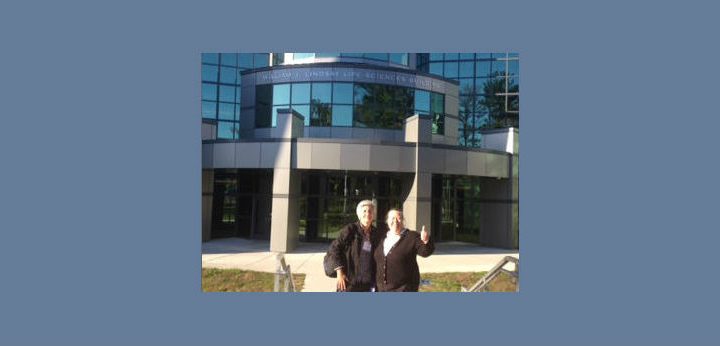By Nina Leonhardt, College Associate Dean for Continuing Education
This all-day regional meeting at SUNY Suffolk on October 15 brought together 35 faculty and administrators from diverse educational institutions: the three SUNY Suffolk campuses, other SUNY institutions (Old Westbury and Stony Brook University), CUNY (Kingsborough Community College and College of Staten Island), Rutgers University, Rider University, Molloy College, Kapi’olani Community College and the South Huntington School District to discuss expanding the SENCER approach to teaching and learning.
This meeting was preceded by a faculty Professional Development Workshop for Suffolk County Community College faculty, that was led by Dr. Robert Franco. It focused on SENCER-izing courses through high impact teaching practices (e.g. service-learning, undergraduate research, internships); building assessment systems focused on student success; and conducting research on the impact of SENCER work. Dr. Franco also discussed how he promulgated SENCER throughout the university system in Hawai’i, a model that can be applied to the SUNY system.
Dr. David Ferguson, Academic Chair for the Department of Technology and Society, Distinguished Service Professor, Associate Provost for Diversity and Inclusion at Stony Brook University and SENCER Co-PI, delivered the keynote address entitled, “Contemporary Global Issues in STEM and STEM Education: A Stage for SENCER Teaching and Learning.”
[bctt tweet=”SCI MID-ATLANTIC Holds Regional Meeting ‘SENCER is the Connection’ at @SUNYSFLK” username=”NCSCE”]The discussion was enriched by contributions from Brookhaven National Laboratory and Rochester Engineering Society representatives who provided STEM learning perspectives from the business, industry and research sectors. Connections and partnerships between SENCER centers for teaching and learning and the informal science educational sector (research centers, museums, aquaria, science centers and the National Park Service) and K-12 educators are forming as emerging state science standards promote the inquiry and problem-solving that have always been at the core of SENCER.
Two research paper presentation sessions and two poster sessions displayed a range of practical applications of SENCER ideals and pedagogy and allowed for a lively exchange of ideas. Suffolk faculty presented papers and posters in each of the four sessions.
The NY Partners Helmsley project was discussed and team members shared their initial implementation strategies.
Outcomes from the meeting included new collaborations to extend the applications of SENCER approaches across sectors and disciplines, and to make connections and forge networks for improving teaching and learning.

